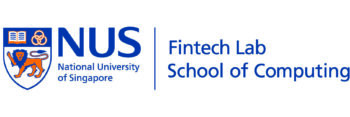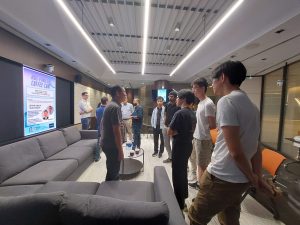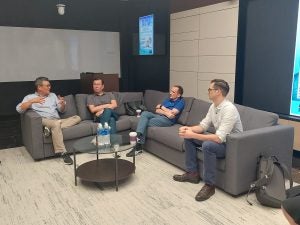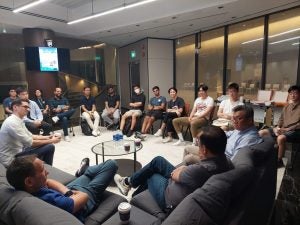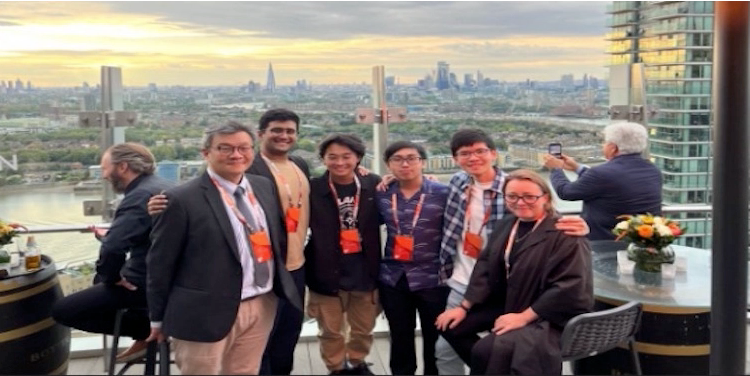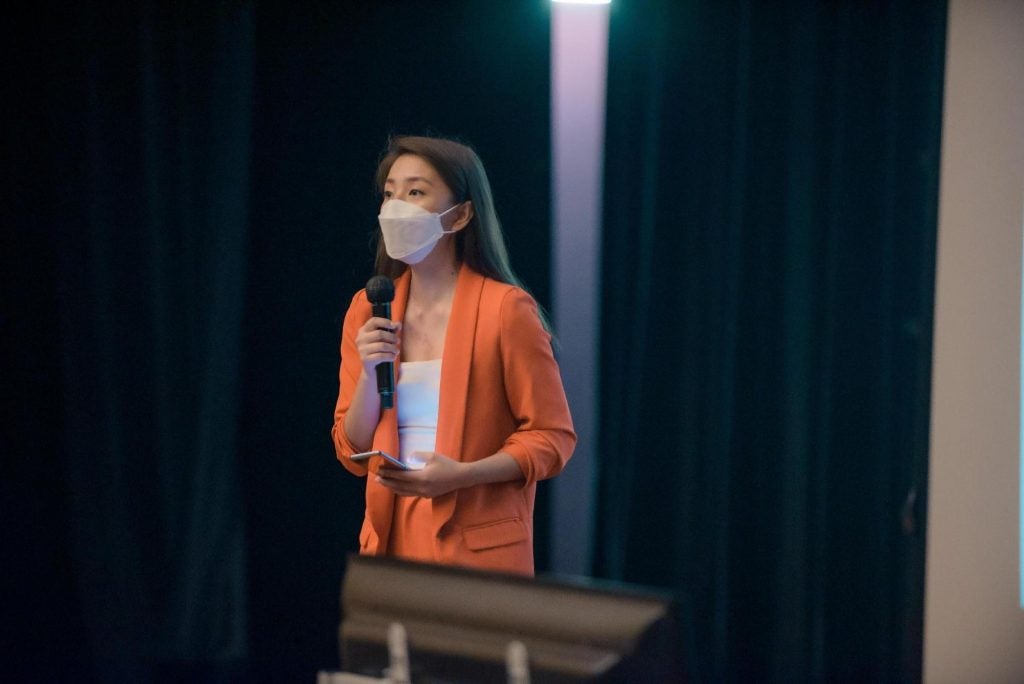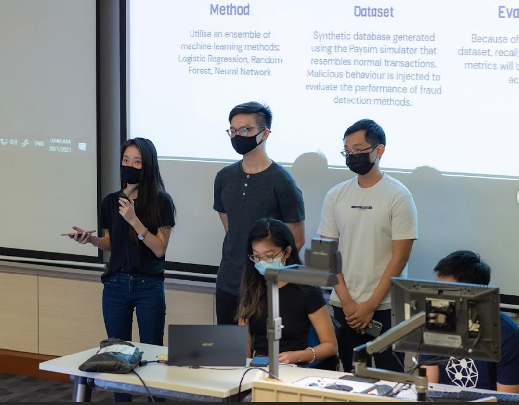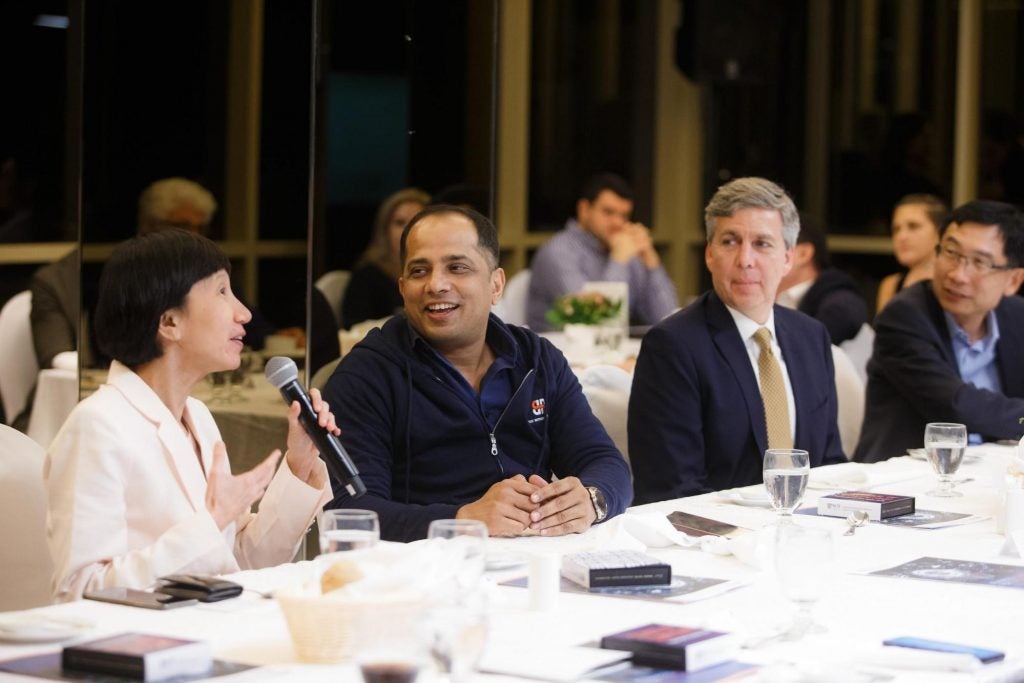Past
Ripple Crypto Strategies for Business Leaders – 24 Feb
Our Director, Prof. Jungpil has been invited to speak in the upcoming event – Crypto Strategies for Business Leaders in partnership with Ripple and NUS SCALE.
Details of the events:
Date: Friday Feb 24th
Time: 11:15 – 12:00 (30-45min discussion followed by Q&A with participants)
Topic: Enterprise crypto solutions
Panelists:
1. Prof.Jungpil, Hahn Lab Director, NUS
2. Jane Pukasemvarangkoon, Partner Success Director, Ripple
3. Yogesh Sangle, Global Head of Consumer Business, Nium (Ripple customer)
Moderator: Phil Woods (NUS ACE Fellow)
Brief Introduction on Crypto Strategies for Business Leaders:
Background:
88% of senior executives think that blockchain technology will eventually achieve mainstream
adoption, however only 39% of those executives said that they have adopted blockchain
technologies in their organizations (Deloitte, 2020 Global Blockchain Survey: From promise to
reality).
Goal of the programme:
To provide participants with an immersive, “back to school” experience where they can learn from the world’s leading educators, researchers, regulators, etc. about how and why they should be implementing a blockchain strategy at their organization.
Target Audiences:
Primary:
1. Banks, neobanks, payments companies, fintech companies, PSPs, etc.
2. Enterprises, especially multinational companies and global disruptors such as PayPal, Facebook, Shopify, AirBnB, FiServ, FIS, Adyen, Uber and global brands who are considering a ‘crypto strategy’ and need a trusted partner
Secondary: Traditional Financial Service ‘crypto laggards’
1. Legacy banks, late adopting FIs
Note that the participants will have varying degrees of knowledge and understanding of
blockchain technology.
Key Objective
Participants who completed the program would have the knowledge to implement a blockchain
strategy at their company.
● Awareness-building opportunities for Ripple as a trusted partner
● Networking and bonding opportunities for the participants as part of the program
Ripple UBRI Connect @ UCL London, 21-22 Sept 2022
What is the University Blockchain Research Initiative (UBRI)?
UBRI is a partnership between Ripple and top universities around the world to support academic research, technical development and innovation in blockchain, cryptocurrency and digital payments. Ripple is providing both financial and technical resources to university partners and collaborates with faculty and students on research and technical projects.
How are partners selected for UBRI? What are the criteria?
Ripple is partnering with a carefully selected set of universities from around the world that are at the forefront of teaching, research and innovation in blockchain, distributed computing, cryptocurrency, cryptography, digital payments and related subject areas.
Current partners are academic institutions: 1) with existing centers of practice and faculty and students who are already active and productive in related subject areas; 2) that are experiencing high demand from students and have related student-driven activities; 3) that bring a variety of perspectives from across a range of academic disciplines and technology; and 4) that contribute to the program’s overall geographic diversity.
The NUS FinTech Lab, an experiential learning lab under the NUS School of Computing, are invited by Ripple (key partner) to submit an application for its upcoming event UBRI Connect (University Blockchain Research Initiative) on 21-22 Sept 2022 in UCL, London.
UBRI Connect is an annual event that connects scholars, researchers, and thought leaders in the UBRI network to showcase blockchain initiatives, share knowledge, and inspire future research.
The conference topic for this year will include:
– Financial inclusion – Decentralized Finance (DeFi) – NFTs
– Sustainability – Blockchain use case demo – Carbon Markets
– Security, Privacy, Scalability, Interoperability, Mutability of Blockchain
– Central Bank Digital Currencies (CBDC)
By bringing together academia and enterprise, UBRI Connect aims to provide an outlet to source new innovation and expand on current implementations.
From the NUS FinTech Lab and Fintech Society, 2 projects were shortlisted and awarded to present / speak in the UBRI Connect London.
Following are the brief details of each projects and projects member:
1. ScaNUS (Fintech Lab)
Project Synopsis:
With over 42% of NFT buyers viewing NFT technology as a “get-rich-quick” scheme, the need to educate the public about alternate and more productive applications for the technology is quite apparent. We aim to address this issue through our platform, ScaNUS.
ScaNUS enables customers to record their engagement with advertisers and event partners, like posters, videos, and other content, onto the blockchain, collecting NFT rewards that they can redeem as discounts at F&B vendors.
With the greater security and verification methods that the blockchain offers, F&B outlets are protected against fraudulent redemptions, as we enter the food metaverse.
2. DAO (Fintech Society)
Project Synopsis:
A DAO acts as a form of venture capital fund with a decentralized management structure.
Through this project, the problem NUS FinTech Society aims to address is incentivising education and attendance to FinTech society trainings and events.
What does our learn-to-earn model mean?
In an effort to capitalize on the creativity of our members, our DAO helps to consolidate and iterate on ideas to propel our society forward. The DAO’s tokens incentivise our members to contribute to our projects and events, pushing us closer to our society’s vision.
NUS FinTech Month Hackathon 2022
While the crypto markets slumped over December and January, students at Fintech Society @ NUS School of Computing were working hard over their winter breaks on one of the largest ever student-led Fintech events in Singapore, NUS Fintech Month 2022, started from 2nd Jan 2022 and ended on 29th Jan 2022. The event is proudly sponsored by Bybit, Ripple (XRP), and Stellar(XLM) – big names in the blockchain industry.
NUS Fintech Month is the society’s flagship and inaugural event that saw its first iteration only a year ago. This year, the team aimed for the stars, organising the event at more than 3 times the scale of the previous year, while sticking to their goals of incubating Fintech talents and supporting the growth and innovation in the industry.
More than 20 workshops and symposia were held over the first 3 weeks of January, covering a large range of Fintech topics at different levels of knowledge and expertise. It was a culmination of knowledge from high profile industry leaders, professors, PhD students, as well as the society’s own machine learning and blockchain directors, who collectively educated from Asia, Europe and the Americas over 3,000 participants on the industry’s trends, technical skills, and career opportunities.
The highlight of the event, however, was the blockchain themed hackathon held over the last two weeks of January, where more than 100 teams from around the world pitted their wits to grab a slice of the attractive S$50,000 prize pool to be won. The theme of the hackathon was revealed as registrations closed on 15 January — “NFTs: Mint, Market or Monetize”. With the recent craze for NFTs, the goal of the hackathon was to pick the brains of these bright students to uncover innovative ideas to improve the minting, distribution, and monetization of NFTs.
Breaking from the mould of the traditional 2-3 days hackathons, the hackathon was structured into 2 phases – an ideation phase and a prototyping phase. The extra time was given to participating teams to place a proportional emphasis on both the business/market feasibility and technical ingenuity of their final solution. The ideation phase ended with the first round of internal judging to choose the teams with the best and most feasible solutions, who then moved on to hack out their prototype, in hopes of making it to the final demo day. After 3 days of careful deliberation, 10 finalists were selected through the second round of internal judging to attend the final demo day where they would pitch live on stage at NUS Campus to a panel of experts.
The demo day was perfect to mark the end of the event, as the 10 teams enthusiastically presented their solutions to the panel of judges. Each presentation was followed by streams of questions from the judges who were deeply impressed by all the finalists’ unique and innovative creations.
Associate Professor (Practice) and advisor to NUS Fintech Society, Keith B. Carter Quote: “FinTech Month was completely envisioned and run by our student members of the NUS FinTech Society. I am very proud they brought together teaching, community and experiential learning in one go. Even more exciting is that many of the top ten teams plan to make real businesses based on their projects.”
Bybit Quote: “We are heartened to see the spirit of innovation flourishing at the hackathon organised by the NUS School of Computing’s Fintech society. The students demonstrated such talent and tenacity, as well as teamwork, that it makes us at Bybit excited just to think of what they will do next. We are extremely glad and proud to have played a role in the event and look forward to many more such occasions in the months and years to come.” – Igneus Terrrenus, Head of Communications at Bybit.
Ripple Quote: “I was impressed with the quality and wide range of use cases for NFTs that the participating teams covered. The hackathon projects not only demonstrated the applicability of NFTs in many aspects but also included ways to increase the accessibility of NFTs to the broader community.” – Bernard Ginalski, Director at Ripple Singapore.
The winning team was called Wentoken and quote:
“NUS Fintech Month and the hackathon was an amazing experience for our team, wentoken. Some of us had zero experience starting out – not even knowing what the term NFT stood for. That said, the workshops provided were very helpful in easing the team into being comfortable with working on web3.
NUS Fintech Month and the Demo Day was awesome as well! It was great to get actionable feedback from the judges – titans in the industry.
Kudos to the NUS FinTech team for striking the perfect balance between COVID restrictions and hosting this great event!
LFG – Let’s keep building towards a web3 future :)”
NUS Fintech Month 2022 might officially be over, but Fintech Society will continue to host informative workshops and exciting events, so follow them on Instagram @nusfintech to keep updated!
NUS FinTech Month Hackathon 2021
NUS FinTech society organized its first ever annual full month fintech events open to university and poly students from all disciplines in January 2021 at the National University of Singapore.
The highlight of the event was a hackathon that required participants to address the problem statement provided by BNP Paribas. The theme focused on anti-fraud detection within a multi-market, multi-entity corporate environment, given the increased risks posed by the COVID-19 pandemic. The challenge was to find ways for corporations to detect fraud in a digital or hybrid operating environment.
The hackathon was judged by Mr. Kok Wai, Hon, Director of Product Management, Transaction Banking (Asia Pacific) from BNP Paribas, who also participated in the opening of the event.
In addition to the hackathon, the NUS FinTech Society organized a series of workshops from 15 to 20 January 2021, covering various topics related to the fintech industry.
The first workshop, titled “Why Crowdfunding is the Preferred Choice for Startup Fundraising,” was presented by Mr. Daniel Lin, Founder of FundedHere. He discussed how modern technology has changed the fundraising process and how crowdfunding has emerged as a viable alternative to traditional fundraising. He highlighted the advantages of crowdfunding, such as instant document verification and multiple payment gateways, which have made transferring money easy and instantaneous.
The second workshop, “Introduction to Decentralized Finance (DeFi),” was shared by Jeff Zhang, Binance Community Manager. He discussed the technology behind DeFi and its challenges to traditional banking. He highlighted the explosive growth of DeFi, with its total value locked exploding from almost US$700M at the start of 2020 to US$15B by the end of the year.
The third workshop, “BSC Stream Transformation with ParsiQL,” was conducted by Mr. Anatoly Ressin, Chief Blockchain Architect at ParsiQL. He shared insights into how blockchain technologies have revolutionized finance and security, and how Parsiq’s stream manipulation language can be used to interpret and transform live data streams.
The fourth workshop, “Innovation and Design Thinking: Perspective from BNP Paribas,” was conducted by Mr. Kok Wai, Hon, who introduced BNP Paribas’ innovative work in banking transactions and design-thinking labs. He shared various case studies and highlighted the importance of co-creation and collaboration to solve various corporate problems, emphasizing the best ways to access these collaborative tools effectively.
The NUS Fintech hackathon 2021 provided an excellent opportunity for participants to learn about the fintech industry through a range of activities, including workshops and hackathons. Attendees gained valuable insights into the industry, with some getting introduced to fintech for the first time, while others explored more advanced topics like machine learning and artificial intelligence.
The NUS Fintech Society expressed their sincere gratitude to all the participants for their active participation in NUS Fintech month, which resulted in an amazing turnout of attendees. The society hopes that the event was able to provide participants with useful skills that they can apply in their professional careers.
Overall, the NUS Fintech hackathon 2021 was a successful event that brought together individuals from various backgrounds and interests to explore the fintech industry. The NUS Fintech Society looks forward to future events that will continue to educate and inspire participants in this dynamic and rapidly evolving field.
Gallery



NUS SoC Leadership Dialogue Dinner
On a balmy evening in early November, the NUS School of Computing (SoC) played host to a gathering of distinguished academics and leading figures in business, including Neo Kian Hong, Singapore Mass Rapid Transit (SMRT) CEO, Sreeram Iyer, ANZ Bank COO, Janet Young, Head Group Channels United Overseas Bank(UOB), Navin Gupta, MD Ripple, Chuah Kee Heng, CEO Singapore Power (SP) Services, Tan Peng Yam, CEO Singapore Gov, Defense Science and Technology Agency, Eric Van Miltenburg, SVP Global Operation, Ripple, Sopnendu Mohanty Chief Fintech Officer Monetary Authority of Singapore, Honorable Kotaro Tamura, Past Member of the Diet, advisor Prime Minister of Japan, Bruce Liang, CEO IHiS (Integrated Health Information Systems) Singapore. This Leadership Dialogue Dinner was a chance for industry leaders and academic experts to have an in-depth discussion about the emerging FinTech sector in Singapore as well as to introduce the newly launched NUS Ripple FinTech Lab to those gathered there. Having crossed the S$1 billion mark in investments by September 2019, the local FinTech industry has been going from strength to strength, and this event served as a timely forum about the role key industry, academic and government players have in driving the growth of FinTech further in 2020.
Professor Mohan Kankanhalli, Dean of SoC, kicked off the discussion of the night with an increasingly pressing technological concern in our modern times — data privacy and security online. In the face of mounting mistrust in big technology companies, it is key to recognise that anonymisation of data is an integral part of any business with a digital aspect, and that keeping data safe and secure at all times cannot be the work of an afterthought. Current methods of anonymisation are falling short of the mark: it only takes four random transactions to re-identify 90% of shoppers as individuals from their credit card metadata, and the identifiability of individuals increases with each new attribute in a given data set.
Cutting edge FinTech applications have already improved the efficiency and convenience of shopping, banking, and communication, and the sector is already working to build better protections around the user data that is generated every time a person uses their mobile phone or laptop. Whether they choose to employ ring signatures and privacy-preserving technologies, or zero-knowledge proofs and blockchain, major companies and businesses have an imperative to lead the way in developing better protection of the personal and financial data that customers generate in their day-to-day dealings. In his remarks, Professor Kankanhalli also explained how the NUS N-CRiPT Centre is at the forefront of developing novel privacy-preserving techniques with their research into issues such as biometrics, smart grids, and Internet-of-Things devices.
Over the course of the night, the discussion turned to the issue of expertise and whether leading businesses and their boards of directors were prepared to meet the challenges of rapidly evolving technology. It is part of the remit of a board to think ahead of the times, make confirm strategic objectives, and oversee activities related to compliance. As technology continues to advance in capabilities and regulation evolves alongside it, boards will need to include one or more members who have insight into the technical nature of emerging technology, while understanding how they fit into the wider landscape of the industry. These expert members will be able to act as a neutral party for the board, helping to separate fact from marketing hype when incorporating the new capabilities of Industry 4.0 whilst steering the course of their business strategy. “A technology person on the board would be squeezed for all the information they know!”.
As part of the ongoing dialogue of the event, attendees agreed that senior leaders of business and academia should be taking a greater role when it comes to regulating technology while allowing space for innovation to flourish. The Monetary Authority of Singapore (MAS) has been proactive about building a flexible and inclusive regulatory framework for digital payments and banking services, as seen in the Payment Services Act and the new licenses being given out for digital banks. Leaders of the industry should be just as responsive, taking the opportunity to come together and act as an impartial party in guiding how developing technology can be safely regulated without impeding boundary-breaking progress. Regulators throughout the Asia Pacific often look to Singapore to set the benchmark for regulating technology, so it is in the interest of our government, businesses, and researchers to ensure technological developments can continue to grow in a regulated environment in the nation and throughout the region.
On the whole, the main message of the night emphasised a culture of collaboration across industries and between public and private institutions and the importance of a FinTech eco-system. No industry can thrive in isolation, and the ones that reach out to new partners early will have the upper hand. A global survey by PwC found that 47% of technology, media and telecommunications and 48% of financial services organisations have integrated FinTech fully into their strategic operating models, while many are looking to cross-sector fusion to sharpen operational efficiency, reduce costs, and better the customer experience. The market in Singapore is rich in potential collaborators whether they be big tech innovators or budding startups, and the NUS Ripple FinTech Lab has recently been launched in the hopes of facilitating and growing such partnerships between finance and business institutions, government agencies, and academic experts.
Established through a partnership between NUS and Ripple’s University Blockchain Research Initiative (UBRI), the lab will serve as a hub for cooperation and collaboration between major stakeholders, a neutral space where the intersecting business, regulatory, and educational interests in the homegrown FinTech sector can be openly discussed for the benefit of all. The NUS FinTech lab will form the education arm of NUS Computing’s Industry FinTech Initiatives (SIFI), and will provide experiential education to enable people to experience traditional financial technology and the use the new tech to make the buzz words understandable, increase interest in the jobs and research problems in the industry and generally make the whole industry more accessible and approachable for all. With ambitious plans to introduce FinTech to 1,000 students and industry professionals by the end of 2020, the lab will be offering a variety of courses and programmes open to all NUS faculty and students as well as the wider community of entrepreneurs and industry professionals.
While dinner and discussion ended with the night at SoC’s Leadership Dialogue Dinner, the true dialogue that will shape FinTech’s future is ongoing, and it is in the hands of business leaders, lawmakers and academics to use strong partnerships and smart oversight to propel this burgeoning field faster and further in 2020.
